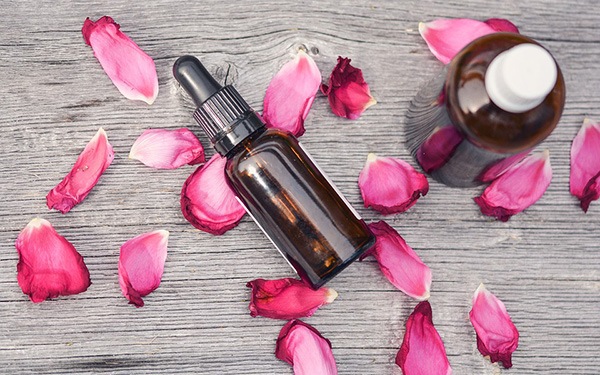Have you ever tried essential oils for plantar warts?
At least once in their lives, everyone has forgotten to take their flip flops to the pool or when walking through the locker room.
But what do you do when that results in a plantar wart that just won’t go away?
Salicylic acid and liquid nitrogen? No thanks!
There are much more natural, gentler ways of treating those pesky little plantar warts on the soles of your feet: essential oils!
Unless you already use essential oils to treat common ailments and injuries, most people aren’t aware that you can use essential oils for plantar wart removal.
For those who are a little wary of using essential oils, there’s little to lose but a few dollars if it doesn’t work. Depending on the type and brand, you can buy most of these oils for as low as five dollars.
Contents
Essential Oils for Plantar Warts

Essential oils are the concentrated liquid form of distilled plants, designed to gain the maximum medicinal properties that the plant provides. This is then used to treat certain ailments either directly, through the use of tinctures, or indirectly, by burning the oils for aromatherapy.
As essential oil treatments are not as aggressive as conventional treatments, a big component of this type of treatment is multiple applications.
Reapply your essential oil mixture or tincture twice a day and cover with a bandage.
Oregano
Oregano is a natural and potent antiviral and antimicrobial, which combats viruses and fungal skin conditions.
Due to Oregano’s fast-acting antiviral property, this may be one of the best essential oils to use for removing your plantar wart.
Here’s a great video on how to best use oregano oil for plantar warts:
Frankincense
This may not be an antiviral, but it can be effective when combined with an essential oil that is.
Frankincense is a good anti-inflammatory to treat skin conditions.
Lemongrass
Lemongrass has been used to treat herpes simplex 1 due to its potent antiviral properties.
It works best in treating plantar warts when used in combination with the other oils on this list.
Thyme
Thyme has been used as an immune booster.
Considering that plantar warts are caused by a virus, boosting your immune system to fight against the wart may be a good route, especially when used in combination with an antiviral essential oil.
Clove Oil
While clove essential oil has antiviral properties, its more effective quality is as a natural anesthetic to reduce pain.
Tea Tree Oil
Not only an antiviral, Tea Tree oil is also an antiseptic and anti-fungal. This makes for a strong offense against most skin conditions and plantar warts in particular.
How to Apply Essential Oils
Use a Tincture
While you can use the pure oil to apply to the wart, they can be too strong for some people, and in some cases, adding something may help the effectiveness for treating plantar warts.
Consider adding a little bit of coconut oil, vinegar, or apple cider vinegar to the oil.
Oil and vinegar, a base and acid respectively, cancel each other out a bit but, more importantly, allow for you to properly dilute the oil without worrying about separation, such as if you tried to use water to dilute.
For the best results, use ½ teaspoon of vinegar, ½ coconut oil, and two drops of two to three of the aforementioned oils.
Double this recipe if you have multiple warts you want to treat, but don’t make too much with the intention of having it made for later, as the acidic nature of the vinegar may destabilize the remedies over a long period of time.

Applicator
When using essential oils to treat plantar warts, a direct method is required. It is suggested you use an applicator to apply the oil or tincture.
Cotton balls can be used, but in the case of small plantar warts, it’s best to use a cotton swab.
You should exchange the cotton ball or swab when you apply to a new wart as to keep each area clean.
Prep
Soak the foot or feet afflicted with the plantar wart and, with a pumice stone, remove the dead skin on and around the warts. Once done, dry your feet.

Applying
Dip in your cotton ball or swap into your mix of oil or tincture and generously apply to the wart area for a few seconds.
Be careful not to apply it anywhere other than the affected area, and to wash your hands before and after application.
Let the oil applied area dry and cover with a bandage. Reapply twice a day until wart is gone.
Stay away from direct heat after applying.
For those that don’t already know, natural, essential oils have certain compounds in them called furoumarins, which are photosensitizers and increase the skin’s sensitivity to UV light.
This can result in redness and burning and will gradually become worse.
This might not be a problem for most people, as the bottoms of feet rarely see direct sunlight, but the warning remains the same.
That’s everything you need to know about essential oils for plantar warts. Any questions?

